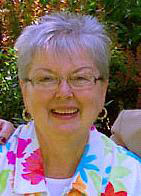Yom Kippur
Five thousand seven hundred and fifty.
My father bends like a willow over his book.
Whispers the N’Sahne Tokef,
Closed fist beating the door of his chest.
He takes neither food nor water.
Waits for the third star.
Again I sit beside him in the seat reserved
For the wife who doesn’t believe.
Answer nothing when he asks if he looks
The age of an old man who looks it.
How many ages since he pulled a sleigh
Through snow, hauling chickens to slaughter.
Paid town toughs a nickel. Rode his bicycle
On the Sabbath. Learned to lie.
Grain elevators are tall as onion domes.
The Ford parts prairie wheat like a sea.
Morning, he opens the shop on a street
With no name. Sells chlib, maslo. Learns
Who to trust. Who not. He listens to
The Philco the German discarded, tired of war.
It is ages since Isaac’s blood pressure rose,
Ronia broke her hip, Irving collapsed at the table.
Who by fire? Who by water? Who by sword?
Who by beast? We count time by the rotations
Of a silver moon. Again it is the tenth of Tishrai.
My father is dressed in white, wears slippers
On his feet. He declares all his vows
Unspoken. Confesses to the sins of a nation.
Wants to believe in mercy.
Editors Note: Karen has graciously allowed me to publish her poem on Yom Kippur. For those readers who may not be familiar with Jewish holy days, I shall attempt to share my little bit of knowledge, thanks to my friends who are Jewish.
Yom Kippur means the Day of Atonement and is, in fact, the holiest day of the Jewish year. On this day, God is believed to decide who is going to live and who is going to die in the coming year. He will either seal your name into the Book of Life or the Book of Death. On Yom Kippur, you have one last chance to settle your affairs with God and to seek atonement for your sins. During the Ten Days of Awe preceding the holy day, you are also counseled to ask forgiveness from people you may have hurt, or sinned against, during the past year. Traditional Jewish people remain in synagogue throughout the day of Yom Kippur and undertake a 25-hour fast, in which they do not eat or drink even a drop of water. They recite prayers of atonement together as a community, prayers that speak of "we", rather than "I". These prayers mention sins against God, as well as sins involving other people, such as violence, fraud, breach of trust, contempt, and hard-heartedness. On Yom Kippur, Jewish people also pledge to donate to charity as a means of redemption.
For those interested in learning more about Yom Kippur, please go to the following website:
It may be interesting for some of our readers to see the similarities between the Christian Lent, the Jewish Yom Kippur and the Muslim Ramadhan. All of them stress a closer relationship to God, fasting or giving up certain things, and the observance of many different types of rituals associated with these holy days. It is a time, in all three religions, where people reflect upon their lives, study the Scriptures and vow to do better, with the help of Almighty God.
Thank you Karen for sharing your wonderful poem about your dear father who has left this sphere of existence. Thank you Ellen Jaffe, for some additional information. It is much appreciated by me.
